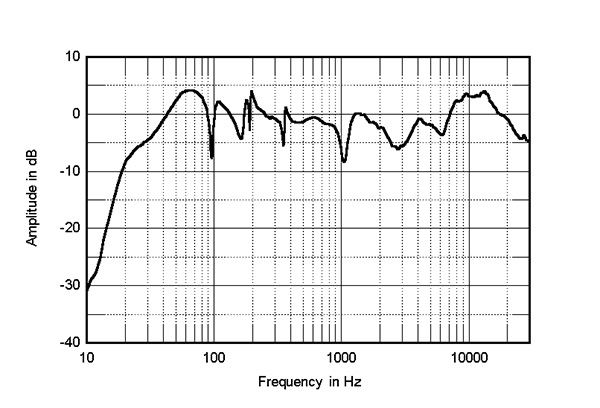@prof Engineering in the service of art, or esthetics. In the end, the esthetic result is what counts. The test results may or may not agree. Also, I have a set of speakers that images and soundstages in a very engaging way. It also has audible frequency anomalies. I still love listening to them. The instruments and voices still sound natural to me and I can point at them in the mix. It makes for a more interesting experience.
What if a high end speaker measures really badly?
You know, it's true that I feel listening is more important than measurements and that it's generally difficult to really tie together measurements with pleasure. Below 0.05% THD do I care? No I do not. I really don't care. The number tells me nothing about whether I'd like the amp more or not anymore.
In this one memorable review for the Alta Audio Adam speaker, I really felt shivers go up my spine when I looked at the measurements, especially at ~$20kUSD. This looks like an absolute hot mess. Does it sound this bad though? I certainly don't have the $20K to test that out myself. What do you all think?

Showing 4 responses by prefab
@botrytis How do you account for the Golden Eared professionals who are responsible for the great recorded works. Are they just listeners, like any other? Did they take a standardized listening course? Yes, hearing is a talent. I have known and read of producers and engineers for many years and none of them relies on measurements or room equalization. In fact, many of the greatest Pop recordings were monitored by Yamaha NS-10s. A terrible sounding speaker with harsh anomalies in the midrange. How di they use those anomalies and why did they prefer them?
And if you don't like the Devore O's, many do. They are a very successful speaker. Do you have the magic golden ears now? |
Sometimes I would rather hear a lot of poeticisms about why a speaker sounds great, rather than hear a bunch of pretenders spout off about graphs and charts that they are not equipped to interpret meaningfully. It's a misleading pretense and not in any way science related, or more importantly, pertinent to the art of speaker design. The only participant in this thread who has the expertise to speak to the science is Audiokinesis. And I am noticing that he shines a lot of insight, but has nothing negative to say. I really appreciate that. |
I would like to recommend that you all spend some time listening on your own and figure out what appeals to you. Then report on what works for you and what you like and notice. Do that for many years and I believe you can find a very satisfying experience. The graphs, the science that you do not fully understand, and the pretentious pseudo-engineer platitudes may make you feel like an expert, but your aren’t. |

